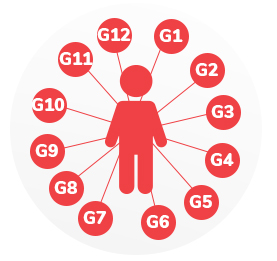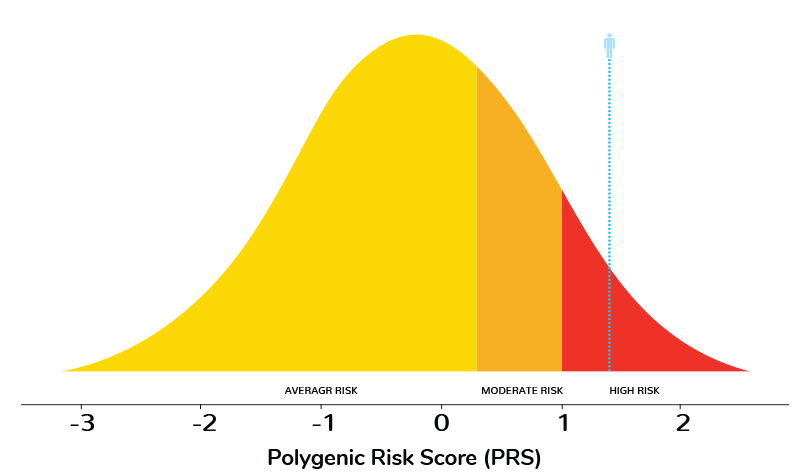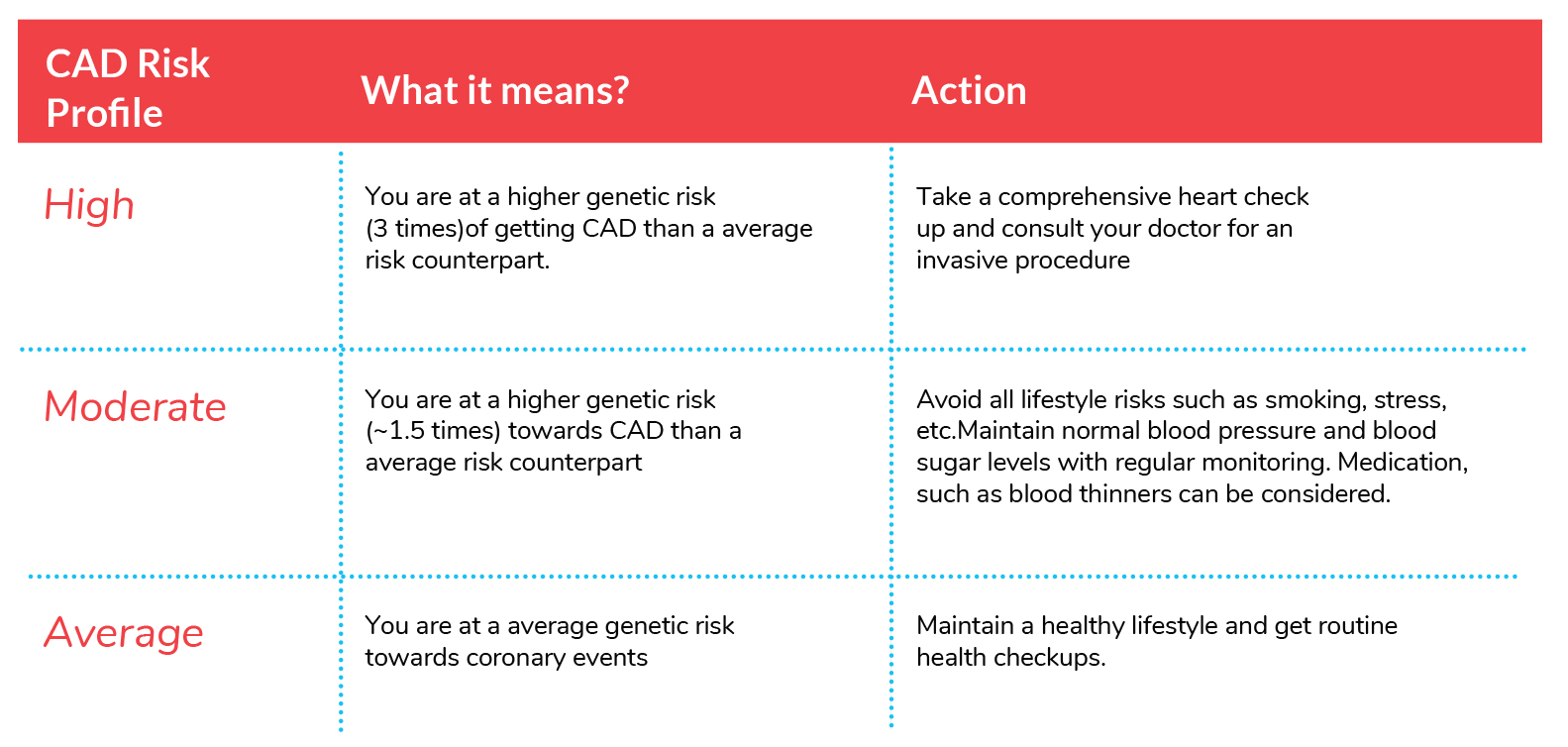

How does Polygenic Risk Score work
Coronary Artery Disease
Coronary Artery Disease (CAD) is a heart condition that causes blockages in the arteries of the heart due to deposition of plaque preventing oxygenated blood supply to the heart. This causes heart attack/angina/MI, all of which can be fatal.

Thank you for reaching out to us. We will contact you soon.
How Prevalent is CAD in India

What is Polygenic risk score?
Genetic research over the past decade has realized that our risk for many common conditions such as heart disease and diabetes are not influenced by just one gene, or even a handful of them. Instead, multiple genes work in tandem to influence our risk for diseases.



Many small-effect genetic variations contribute to a person’s susceptibility to CAD. Polygenic Risk Score (PRS) prediction quantifies the contributing effects into a score and estimates whether the tested individual is at a high and average risk of CAD.
A genome-wide PRS for CAD integrates information from millions of sites of common DNA variation into a single metric-available from birth – of inherited risk.

How does the KardioGen test work?

- It is a screening test based on the PRS principle and that helps estimate the genetic predisposition of an individual to develop CAD
- The risk is calculated from >5 million 3 genetic markers implicated in the disease and is given as a validated Polygenic Risk Score (PRS)
- The score indicates if the individual is at high and average genetic risk
- MedGenome’s KardioGen test is validated for the South Asian population4
How accurate is the KardioGen test in predicting CAD?
CAD PRS is highly sensitive to picking up young onset CAD with ~90% positive predictive value4. This mean 90% of times the test was able to predict high risk for individuals who had a coronary event before 45 years of age.
Note: The KardioGen test is a screening test and hence all high risk individuals may not get a high risk score and several with average risk can get CAD early depending on other risk factors.
Who should take the Kardiogen CAD PRS test?
- Individuals with a family history of CAD
- Individuals with high lifestyle risk i.e. with hypertension, diabetes, smoking habits, alcohol consumption, stressful lifestyle, etc.
- All individuals above the age of 35 years, with comorbidities like hypertension, diabetes or elevated blood cholesterols (LDL >190mg/dl)
- All individuals above the age of 45 years
- All individuals who are concerned about their genetic risk of developing CAD
What are the advantage of the KardioGen test over conventional screening options
Existing risk predictions are based on factors such as weight, lifestyle, blood measurements and which are variable thought a person’s lifetime and cannot be used to predict risk accurately.
CAD PRS on the other had is an independent genetic predictor and is free from variabilities. The test is based on a person’s genetic makeup and predicts their risk profile.
Knowing a person’s risk can help in timely lifestyle changes, health monitoring and disease management.
Why trust MedGenome
- MedGenome Labs is India’s leading genomics and clinical data-driven diagnostics and research company
- At MedGenome we operate the highest throughput genetic testing lab in India
- The KardioGen test is based on research published in the prestigious Journal of American College of Cardiology (JACC)
- KardioGen is the only PolyGenic Risk Score test to be validated on the Indian population
- We collaborated with researchers from Broad Institute of MIT and Harvard; Massachusetts General Hospital, Boston; Narayana Health, Bangalore; Eternal Hospital, Jaipur; Madras Medical Mission, Chennai; KMCH, Coimbatore and other institutes for the validation study
What is the test process?
Just 3 ml of your blood can give your CAD PRS score

What does one do after receiving your CAD score
